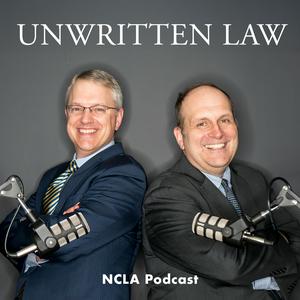In this episode of Unwritten Law, NCLA Senior Litigation Counsel John Vecchione and NCLA President Mark Chenoweth are joined by Andy Morris to discuss the Supreme Court’s 6–3 decision rejecting the claim that the President has unilateral authority to impose, raise, or lower tariffs under the International Emergency Economic Powers Act (IEEPA).
The conversation unpacks Chief Justice Roberts’s majority opinion, which relies on careful textual analysis to reaffirm that tariff authority belongs to Congress—not the Executive. John, Mark, and Andy explain why the statute’s language does not authorize revenue-raising measures, how the Constitution’s prohibition on export taxes reinforces that conclusion, and why decades of practice confirm that “regulating importation” does not mean imposing tariffs.
They also examine the dissents, including Justice Kavanaugh’s reliance on prior cases like Algonquin, the role of the Major Questions Doctrine, and why emergency powers do not justify bypassing Congress’s exclusive taxing authority. The episode closes with a broader discussion of separation of powers, the dangers of discretionary tariff regimes, and why this decision represents a major win for constitutional limits on executive power.


